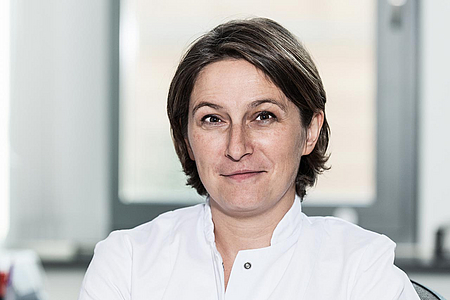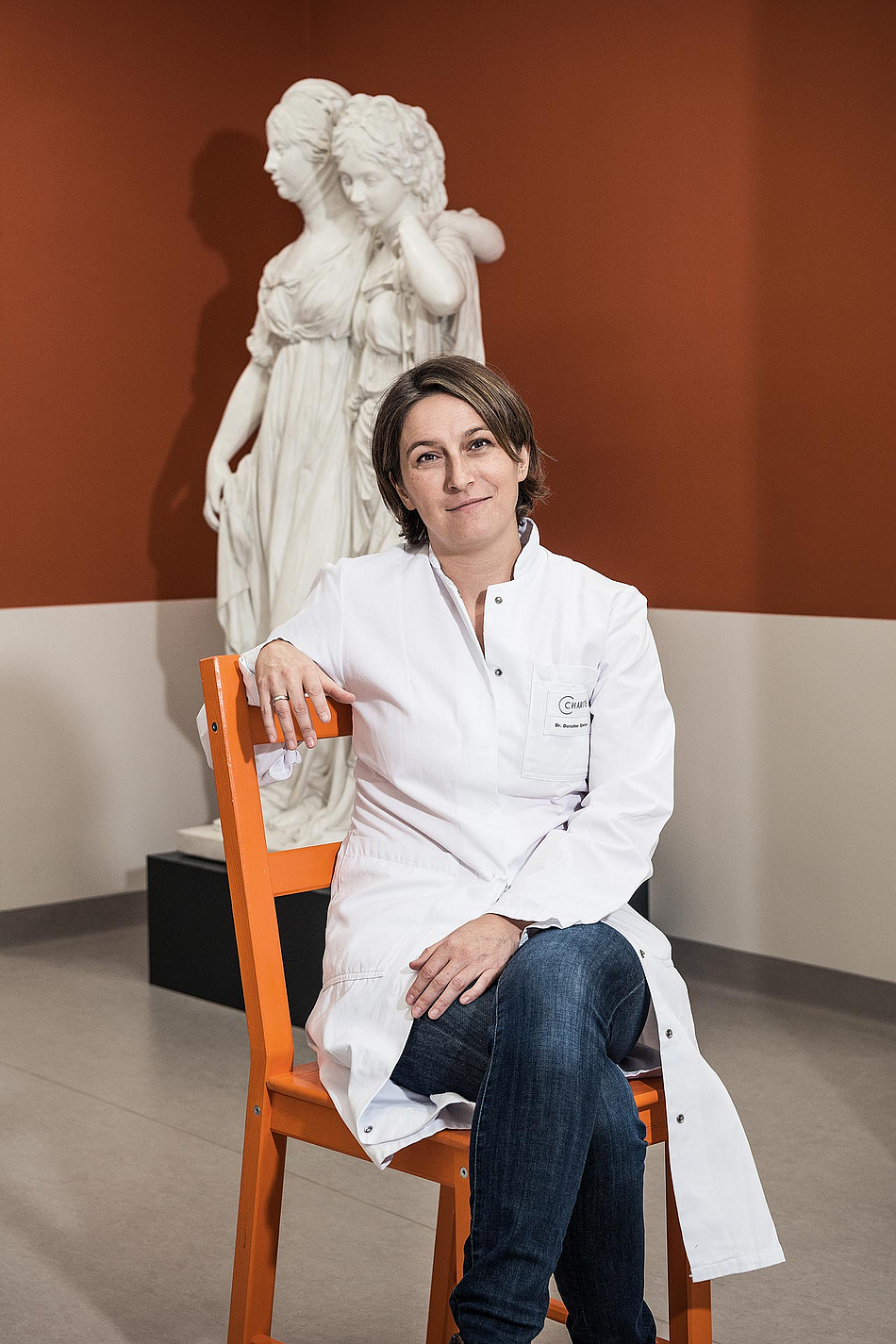If Hollywood influences the Charité…
Within the framework of her BIH Clinical Fellowship, Dorothee Speiser has developed and conducted an advanced training module on family-related breast and ovarian cancer. Here on FACES, she explains exactly what it’s about and what led to the project:
“In 2013, Angelina Jolie went public about her BRCA mutation. This is a genetic mutation which increases the risk of contracting certain types of cancer. Her public declaration massively increased public awareness of breast and ovarian cancer and the need for appropriate medical advice has dramatically increased. Nowadays, one even speaks of the “Jolie effect”. Here at the Charité, we also recorded a marked increase in our case numbers. At that time, we initially assumed that all the additional women who came to us were suffering from needless anxiety – which, however, proved to be a false assumption. In retrospect, I would estimate that 95 per cent of those women were and are absolutely right. Against that background, we asked ourselves the question as to how many of the cancer-history families had already been given any advice at all. Even taking the Jolie effect into account, we haven’t reached all the women who are at risk, even though that is our aim. Our advisory service is subject to the German Genetic Diagnostics Act, which places decisive importance on “the right not to know”. We rigorously adhere to that standard and accordingly only advise families who expressly wish it.
That’s the background to why I want to make the issue of “breast and ovarian cancer” more comprehensible for gynecologists from various breast and gynecology centers. In Germany, there is a consortium for family-related breast and ovarian cancer with 18 university-based centers. These centers have taken on the task of advising, genetically testing, if need be operating on women who either already have cancer or in whose families many cases of cancer have occurred and including them in early diagnosis programs. Up to now, this range of services was mainly limited to these 18 locations. However, as the issue became ever more ubiquitous, more and more women, and now men too, are needing access to these measures. We’re therefore trying to enhance trans-sectoral care and to expand the program beyond the university centers to include other hospitals. For the women concerned, this has the great advantage that they can obtain information and have themselves genetically tested close to home. Up to now, the Charité has had to cover the whole of Brandenburg and Mecklenburg-Western Pomerania. Not having to drive all the way to Berlin from the surrounding areas removes obstacles and also makes it easier to utilize our advisory service and measures.
Which is why I’ve developed a curriculum for advanced trainings as part of my funded project at the Charité, at the end of which the gynecologists are in a better position to provide initial information and to carry out genetic tests for women with cancer. Diagnostics have markedly improved particularly in the genetic area, so that we can tell in advance who has a greater risk of getting cancer. The earlier one recognizes an increased risk, the better – not just for the patient themselves, but also as a decisive step for relatives. The knowledge that the gynecologists need for this is taught during their studies and is also touched on as part of the specialist examination. However, many colleagues can no longer spontaneously recall that knowledge and are no longer at the cutting edge of science.

Funding program
BIH Clinical Fellows
Funding period
2016 – 2018
Project Title
Conception and implementation of a training module on Hereditary Breast and Ovarian Cancer
Research area
Gynecology
Institution
Charité – Universitätsmedizin Berlin
Since 2005
Resident physician, consulting physician, senior physician and head of consultations on tumor risk, Department of Gynecology with Breast Center of the Charité – Universitätsmedizin Berlin
1996 – 2002
Medical degree in Rostock, Leipzig and Berlin (Germany), PhD at the Department of Pathology, University of Leipzig Medical Center
2003 –2004
Arzt im Praktikum (Medical intern) in the Department of Gynecology, Universitätsklinikum Hamburg-Eppendorf (UKE)
It’s therefore important to enable more colleagues to make the current diagnostic possibilities available as well. Together with the German Cancer Society and our colleagues from the other consortium centers, the next step is to try to spread this concept throughout Germany.
I advise patients against consulting Dr. Google in the meantime. That’s often catastrophic. I regularly have – this is no exaggeration – weeping patients who say they have found out half-truths or untruths about their supposed genetic status in some chatroom or other. There’s still plenty of work ahead of us, to lead those seeking advice to the right information sources, such as the pages of the German Cancer Aid or the BRCA Network. What’s missing is a signpost that can help the patients to orient themselves in the information landscape and to visit the right medical advice centers.”
October 2017 / TO
